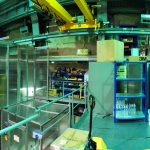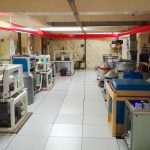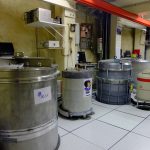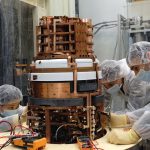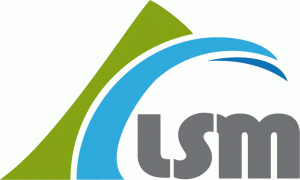 LSM-CZ – website
LSM-CZ – website
Participation of the Czech Republic
Hosting institution: Czech Technical University in Prague
Partner institution: National Radiation Protection Institute
Laboratoire Souterrain de Modane (LSM) is an international underground laboratory, which covers multidisciplinary fundamental research in particle, astroparticle and nuclear physics requiring extremely low radioactivity environments (e.g. search for dark matter, studies of the properties of neutrinos) and broad range of applications such as very sensitive detection of radionuclides (safety, health), microelectronics (tests of chips), radiobiology (investigation of DNA and cells in conditions with extremely low level of ionizing radiation), geoscience (geo‑neutrinos), archeology (radionuclides dating) and climatology. LSM provides its users with ultra-low background conditions from a point of view of all types of the radioactivity (cosmic rays, gammas, neutrons), including air purification (suppression of radon), ultra-low background HPGe (High Purity Germanium) spectroscopy for the selection of radio-pure materials or for the study of rare processes, BiPo detector for measurement of thin foils radioactivity at the level of few μBq/kg in 208Tl and 214Bi, an advanced radon emanation screening facility and an improvement of innovative detector technologies (pixel detectors) for low background conditions. LSM is involved in the international cooperation with other deep underground laboratories in United Kingdom, Spain, Italy, People´s Republic of China or Canada. LSM-CZ allows the participation of the Czech research community in the LSM research mainly concentrated in the neutrinoless double beta decay, detection techniques and development of ultra-low background technologies. LSM-CZ contributes to operation of the research infrastructure LSM as well as to the supportive research infrastructure in the Czech Republic. R&D performed by the Czech user community of LSM is based on detection of extremely rare signals (e.g. 0νββ decay of 82Se with the half-life sensitivity of 2×1026 years, an application of Si pixel detectors in 2νEC/EC decay, environmental studies, and a selection of radiopure materials). In addition, the construction of the ultra-low background facility as a common activity of the Czech Technical University in Prague, Comenius University in Bratislava and Joint Institute for Nuclear Research (JINR), biological studies of cells and bacteria under “zero” radiation conditions or studies of radioactive traces in environment of a nuclear power plant should be mentioned.
Future development
LSM itself is undergoing continual development of its technological facilities. At present, the project of the LSM laboratory area extension to 14 000 m3 is prepared. In a long-term perspective the establishment of a common pan-European platform, involving 4 existing underground laboratories, is planned.
Socio-economic impact
Important impact of the LSM-CZ activities is given by creating of a complementary national research infrastructure in the Czech Republic, educating the team of Czech experts, including diploma and Ph.D. students in underground science, and establishing a cooperation with innovative industrial partners involved in the development of components for LSM and LSM-CZ (scintillating detectors, sophisticated automatic system for HPGe detectors, facilities for cleaning of air from radon, neutron shielding, low background steel constructions, stainless steel vessels, and clean room with zero-dose environment for biological research). An international MEDEX conference dedicated to nuclear matrix elements calculations and double beta decay is regularly organized by LSM-CZ in the Czech Republic.
